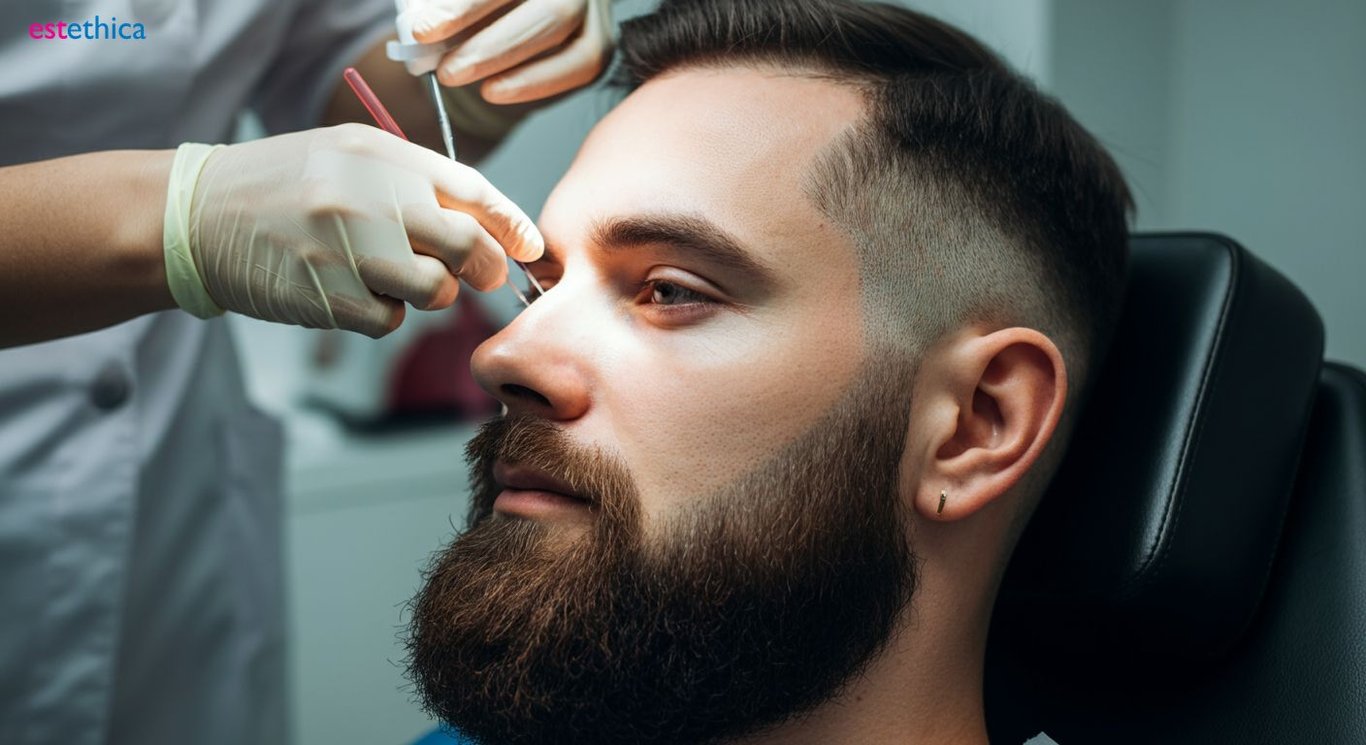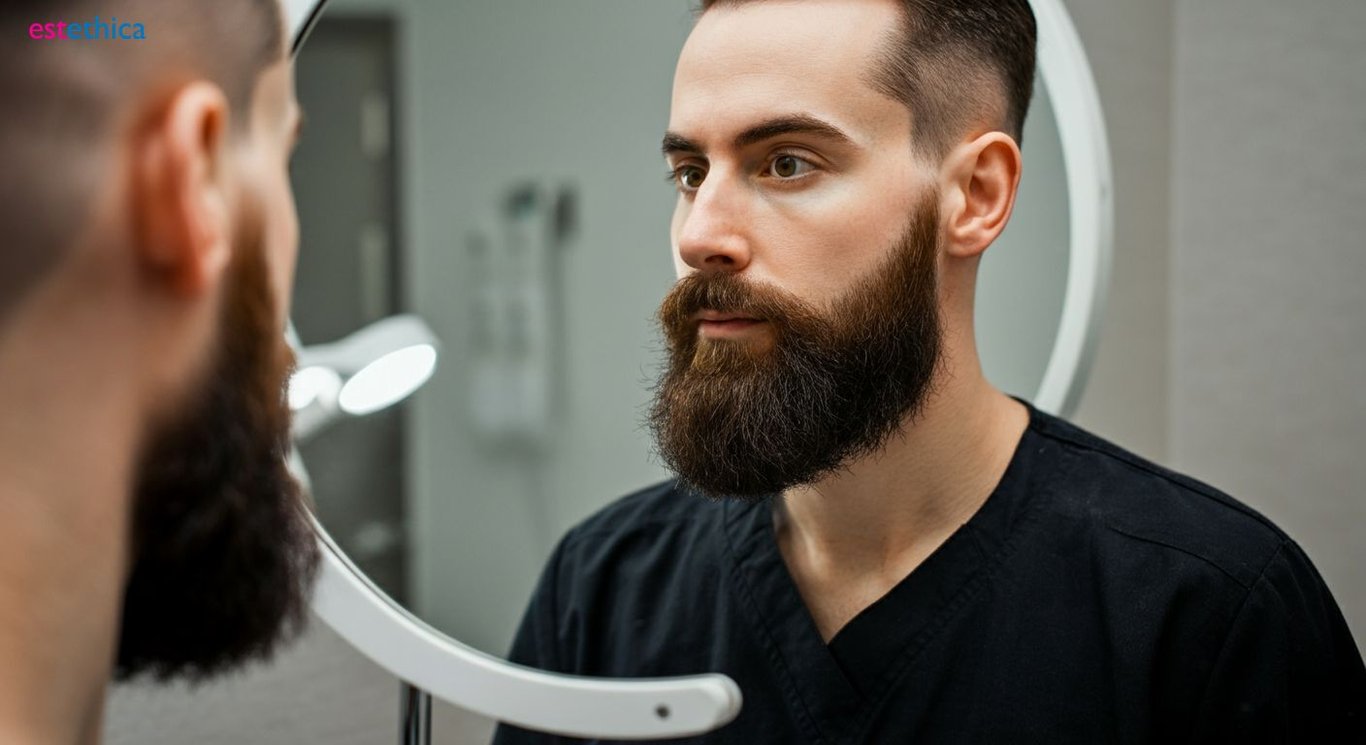Unlock Your Confidence: Beard Transplant Insights
Explore the comprehensive guide to beard transplants, revealing techniques, costs, and recovery tips for an impressive transformation.
Unlocking Beard Transplant Secrets: A Comprehensive Guide
Beards have become a symbol of masculinity and personal style in modern culture. Many individuals struggle with patchy or thin facial hair that can hinder their ability to grow a full beard. Fortunately, beard transplants offer a promising solution to this problem, with increasingly sophisticated techniques and accessible procedures. This comprehensive guide delves into everything you need to know about beard transplants, from understanding the procedure to selecting the top techniques and ensuring a successful recovery.
Understanding Beard Transplant: What You Need to Know
What is a Beard Transplant?
Beard transplantation is a surgical procedure designed to restore or enhance facial hair, particularly in the beard area. This process involves transferring hair follicles from a donor site, usually the back of the head, to the face. It's an ideal solution for those with patchy beard growth due to genetics or other factors. The procedure is similar to hair transplants and is typically performed under local anesthesia, ensuring minimal discomfort.
Key Considerations for a Successful Beard Transplant
- Thick hair in the donor area is crucial for a successful transplant.
- Realistic expectations about the outcome are essential for satisfaction.
- A thorough consultation with a physician helps tailor the procedure to individual needs.
Understanding the nuances of the procedure is paramount. Potential side effects like swelling and redness should be discussed, and realistic expectations of hair growth over time should be set. For more insights on how a beard transplant can boost your confidence, visit Unlock Your Confidence with a Beard Transplant.
Steps in the Beard Transplant Process
- Consultation: Discuss goals, techniques, and medical suitability with a physician.
- Planning: Determine the number of follicles needed for desired fullness.
- Procedure: Transplant hair follicles under local anesthesia, ensuring minimal discomfort.
Each step is crucial to achieving the desired outcome. The planning phase involves outlining a strategy that aligns with the patient's specific needs and goals. This ensures that the beard transplant not only meets but exceeds expectations, providing a natural and fuller appearance.

Top Techniques for Successful Beard Transplantation
Advantages of FUE and DHI Techniques
When considering a beard transplant, understanding the best techniques is crucial. The Follicular Unit Extraction (FUE) method is renowned for its minimal scarring and quick recovery time. This technique involves extracting individual hair follicles from the donor area, typically the back of the head, and transplanting them to the beard region. The precision of FUE makes it ideal for achieving a natural look with substantial density, which is a priority for many seeking facial hair restoration.
On the other hand, the Direct Hair Implantation (DHI) technique offers a different set of advantages. Utilizing the Choi Implanter Pen, DHI allows for precise placement of hair follicles at the correct angle, direction, and depth. This precision ensures a natural appearance and reduces trauma to the skin, leading to faster recovery times. Unlike FUE, DHI does not require pre-made canals or incisions, making it a less invasive option for those concerned about skin trauma.
Choosing the Right Beard Transplant Clinic
- Ensure the clinic employs experienced surgeons with a track record of successful procedures.
- Look for clinics that utilize the latest technology in hair restoration.
- Consider clinics that offer detailed pre-surgical planning for personalized care.
Choosing the right beard transplant clinic is as important as selecting the technique. A qualified clinic with experienced surgeons can significantly impact the success of the procedure. It's essential to select a clinic that not only uses advanced technology but also provides comprehensive pre-surgical planning. This ensures that the procedure is tailored to individual needs, maximizing the chances of achieving the desired outcome.
Understanding Beard Transplant Costs
- Consultation: Initial discussions to understand the scope and expectations of the transplant.
- Technique Selection: Costs may vary based on the chosen technique (FUE or DHI).
- Post-Procedure Care: Consideration of recovery time and any additional treatments required.
While the cost of a beard transplant can vary, it's important to focus on the quality of care and expertise offered by the clinic. The consultation phase is crucial for setting realistic expectations and understanding the financial commitment involved. Selecting the appropriate technique, whether FUE or DHI, can also influence the overall cost. Additionally, post-procedure care should be factored into the decision-making process, as it can affect both the recovery time and the final results.

Preparing for Your Beard Transplant: Essential Steps
Pre-Surgery Considerations for Optimal Results
Preparation is key to a successful beard transplant. Before the procedure, a comprehensive medical evaluation is essential to determine your suitability for surgery. Discuss any existing medical conditions and the use of substances like alcohol or tobacco, as these can affect healing. Avoid medications such as aspirin or anti-inflammatory drugs weeks before surgery to reduce bleeding risks. Abstaining from smoking and limiting alcohol consumption is crucial, as both can impair wound healing.
Steps to Prepare for Your Beard Transplant
- Medical Evaluation: Ensure you are a suitable candidate for the procedure.
- Medication Adjustment: Avoid certain drugs to minimize bleeding risks.
- Lifestyle Changes: Abstain from smoking and limit alcohol intake for better healing.
Clarifying doubts about the procedure and discussing aesthetic goals during pre-surgery consultations can alleviate anxiety. Planning for recovery time is also crucial, as rest enhances healing and implant success. Gathering information about the process and understanding what to expect can empower patients as they prepare for their beard transformation.
Essential Lifestyle Adjustments
- Discuss any medical conditions with your surgeon for tailored advice.
- Plan for adequate recovery time to ensure optimal healing.
- Gather information to understand the process and set realistic expectations.
These steps not only prepare you physically but also mentally for the journey ahead. Understanding the nuances of beard implants, beard hair replacement, and facial hair plugs can provide a clearer picture of the transformation process. By following these guidelines, you can ensure a smoother experience and a more successful outcome.

Navigating Recovery: Tips for Optimal Beard Growth
Effective Aftercare for Beard Transplants
Aftercare is crucial for the success of beard implants. Post-surgery, expect some swelling and redness, which typically subside within weeks. Following your surgeon's aftercare instructions is vital. This includes cleaning the transplanted area, managing discomfort with prescribed medications, and avoiding strenuous activities. Proper aftercare helps stabilize the implanted follicles, reducing complications and enhancing results.
Lifestyle Tips for Healthy Beard Growth
- Maintain a balanced diet rich in vitamins and proteins to support hair growth.
- Practice stress-reducing techniques like meditation or yoga to promote overall health.
- Avoid smoking and excessive alcohol consumption, as they can hinder recovery.
Living a healthy lifestyle can significantly impact the success of your beard transplant. A nutritious diet and stress management contribute to the health and growth of your new beard. Patience is essential, as full results may take up to a year to manifest. By adhering to these guidelines, you can optimize your beard growth journey.
Understanding Beard Transplant Recovery Time
- Initial Healing: Swelling and redness typically resolve within two weeks.
- Follicle Stabilization: Transplanted follicles begin to stabilize over several months.
- Full Results: Expect to see fully matured results within 12 months.
Understanding the recovery timeline helps set realistic expectations. While initial healing is relatively quick, the stabilization and growth phases require patience. By following aftercare instructions and maintaining a healthy lifestyle, you can ensure optimal results from your beard transplant.
Precision Techniques in Beard Transplantation
Excellence in Beard Transplant Outcomes
Frequently Asked Questions
What is a beard transplant and how does it work?
What are the best techniques for a successful beard transplant?
How should I prepare for a beard transplant?
What is the recovery time for a beard transplant?
Is a beard transplant permanent?
Discover the Path to 'Healthy Beauty' with estethica's Expert Care. Call Now for Your Free Consultation!
📞 Speak with Our Specialists Today!